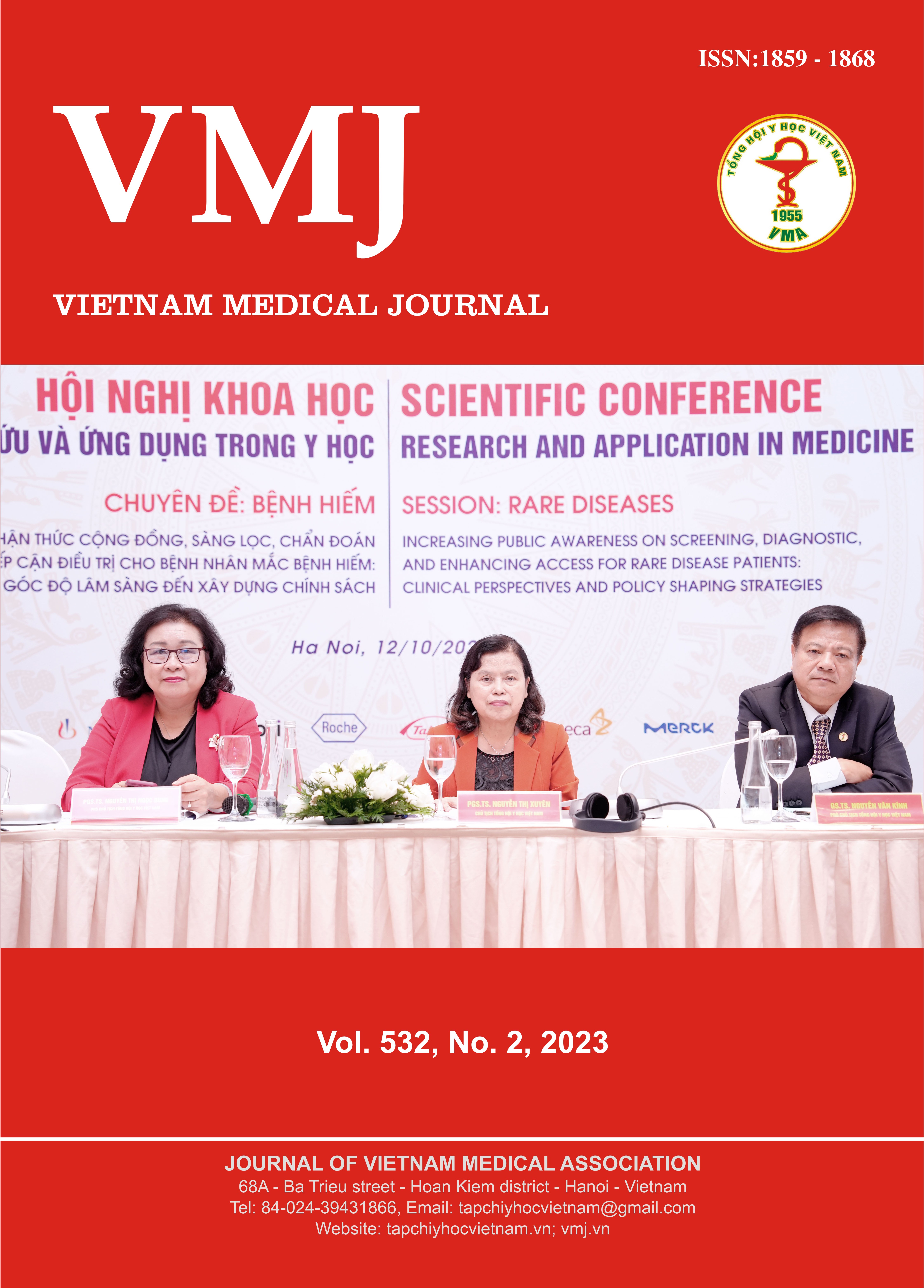SPECIFIC COMPETENCIES REQUIRED OF ONCOLOGY NURSES IN VIETNAM: RECOMMENDATION FOR NURSING EDUCATION
Nội dung chính của bài viết
Tóm tắt
Background: The oncology nurse plays a critical role in the delivery of quality nursing care to people with life-limiting conditions as they are among the most vulnerable of populations served by health services. Purposes: The study aims to explore needed competencies among nursing practicing in oncology facilities in hospital. Methods: An ethnography study was conducted in Ho Chi Minh City, Vietnam with a purposive sample of fifteen participants, including oncology nurses, nurse managers, medical doctors, and family relatives of patients with cancer. Data collection was by participant-observation, in-depth interviews and focus group discussions. Content analysis was used to analyze the data. Findings: Besides providing the regular nursing care as general nurses, nurses working in oncology settings response to specific services including end of life nursing care. Specific competencies among oncology nurses include Knowledge on science of cancer and complementary therapies; Understanding and sensitive on cultural and vulnerable groups; Knowledge and skills on palliative care and hospice; Special communication skills in vulnerable environment; and Specific essential characteristics requirement among oncology nurses. Conclusion: The knowledge generated would benefit nursing managers, nursing educators, and other significant personnel to pursue effective competency development strategies to nurses in order to achieve a high standard of nursing care in oncology settings.
Chi tiết bài viết
Từ khóa
Oncology, Competency, Nurses, Vietnam
Tài liệu tham khảo
2. Ferlay J, Ervik M, Lam F, Colombet M, Mery L, Piñeros M, et al. Global Cancer Observatory: Cancer Today. Lyon: International Agency for Research on Cancer; 2020 (https://gco.iarc.fr/today, accessed 4 December 2022).
3. Matthew J Cordova, MJ., BRiba, M.; Spiegel, D. (2017). Post-traumatic stress disorder and cancer. The Lancet Psychiatry, 4(4): 330-338.
4. Ferrell, B., McCabe, M., & Levit, L. (2013). The Institute of Medicine report on high-quality cancer care: Implications for oncology nursing. Oncology Nursing Forum, 40, 603–609.
5. SANC – South Africa Nursing Council (2020). Regulating Nursing, Advocating for the public: Competencies for oncology and palliative nursing.
6. WHO (2020): International Agency for Research on Cancer: Viet Nam Source: Globo can 2020. https://gco.iarc.fr/today/data/factsheets/populations/704-viet-nam-fact-sheets.pdf
7. Ministry of Health (2022). Decision No. 183/QD-BYT dated January 25, 2022 of the Ministry of Health on the issuance of Guidelines for Palliative.
8. L. Iacorossi, F. Gambalunga, M. Di Muzio, I. Terrenato, S. El Sayed, F. Ricci, L.A. Pulimeno, I. Notarnicola (2020). Evaluation of the perception of clinical competencies by nursing students in the different clinical settings: An observational study. Ann Ig 2020; 32(1): 27-37 doi:10.7416/ai.2020.2327.
9. Gaguski ME, George K, Bruce SD, et al. Oncology Nurse Generalist Competencies: Oncology Nursing Society’s Initiative to Establish Best Practice. Clin J Oncol Nurs 2017; 21(6): 1-9.
10. Ryan K, Connolly M, Charnley K, Ainscough A, Crinion J, Hayden C, Keegan O, et al. (2014). Palliative Care Competence Framework Steering Group. Palliative Care Competence Framework. Dublin: Health Service Executive.
11. Benner P. (1984). From novice to expert. Am J Nurs; 82(3): 402-7.
12. Arofiati, F., & Nuntaboot, K. (2017). Perceptions of Indonesian practical nurses towards updating capability to provide care: A qualitative study. Belitung Nursing Journal, 3(1), 3–13. https://doi.org/10.33546/bnj.37.


